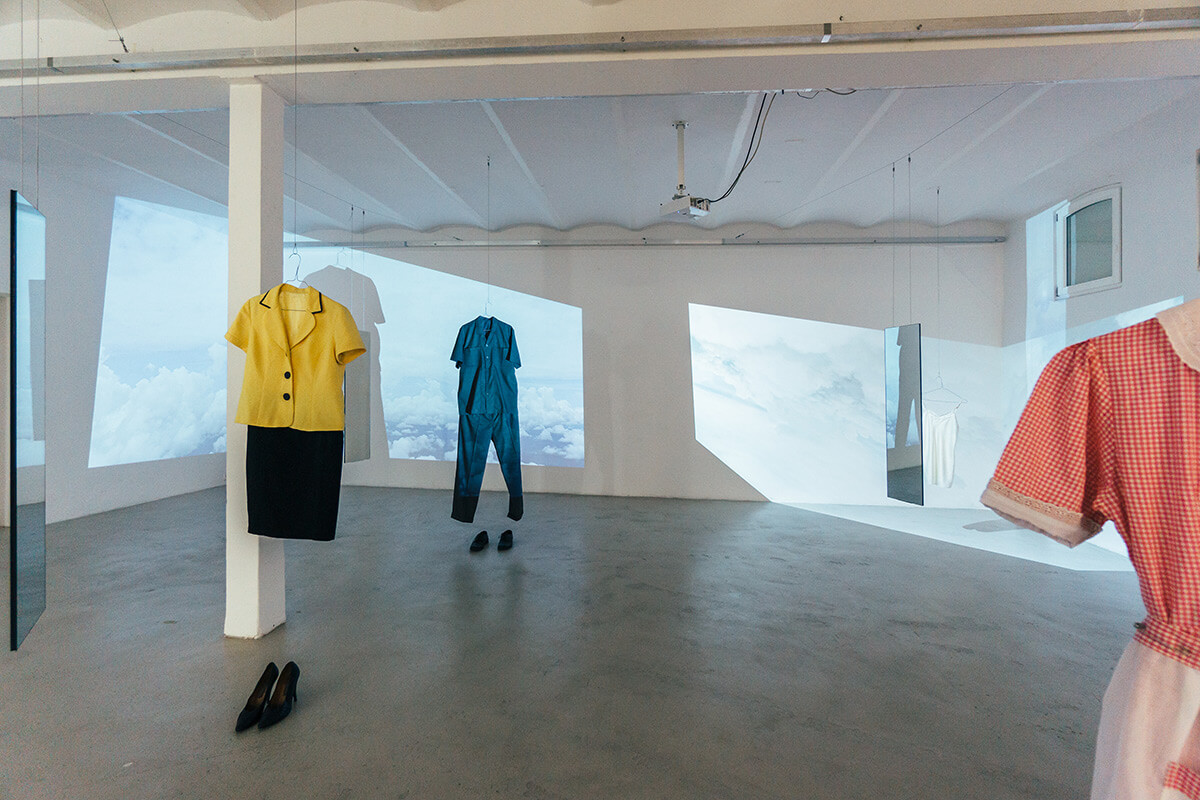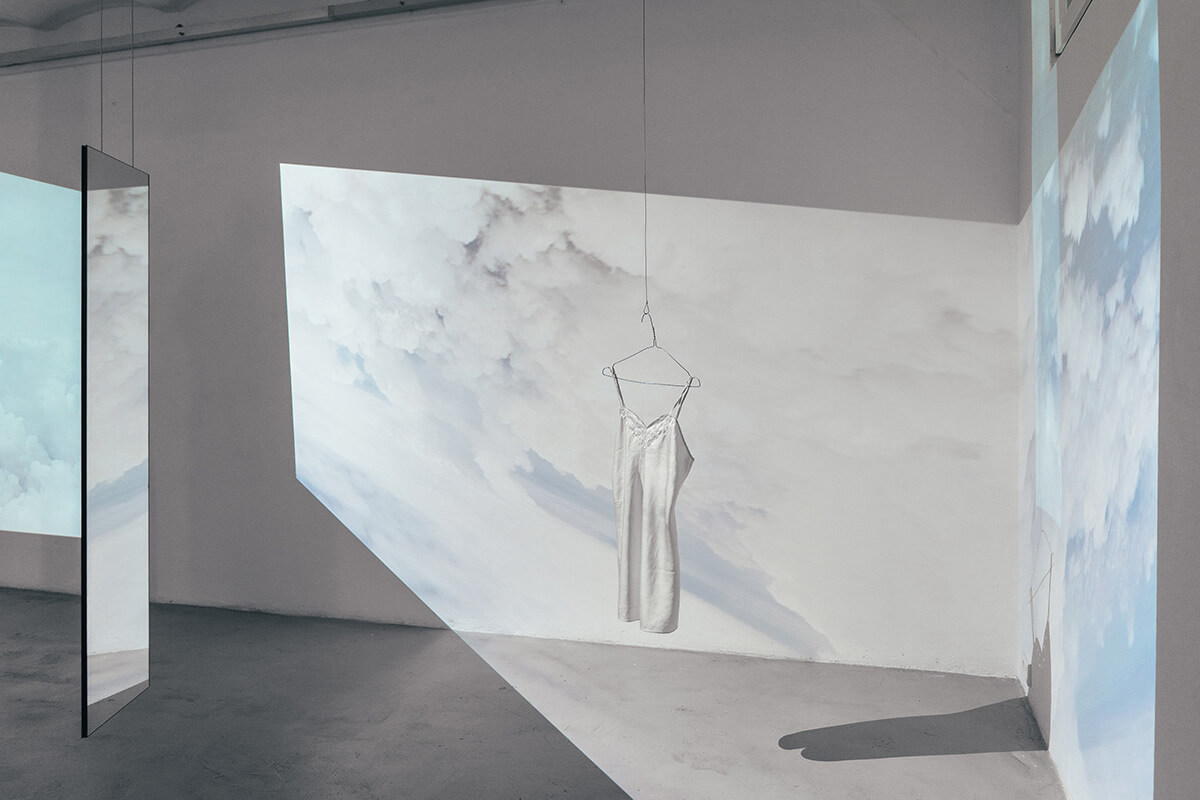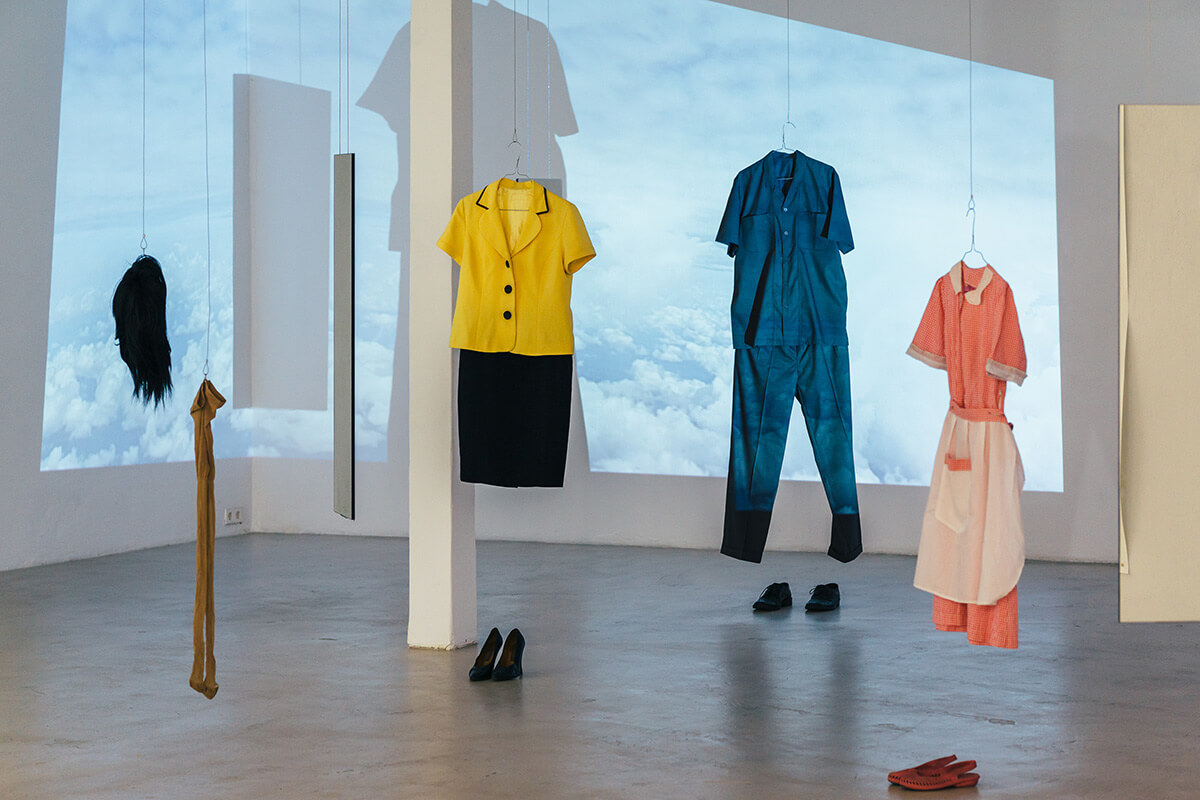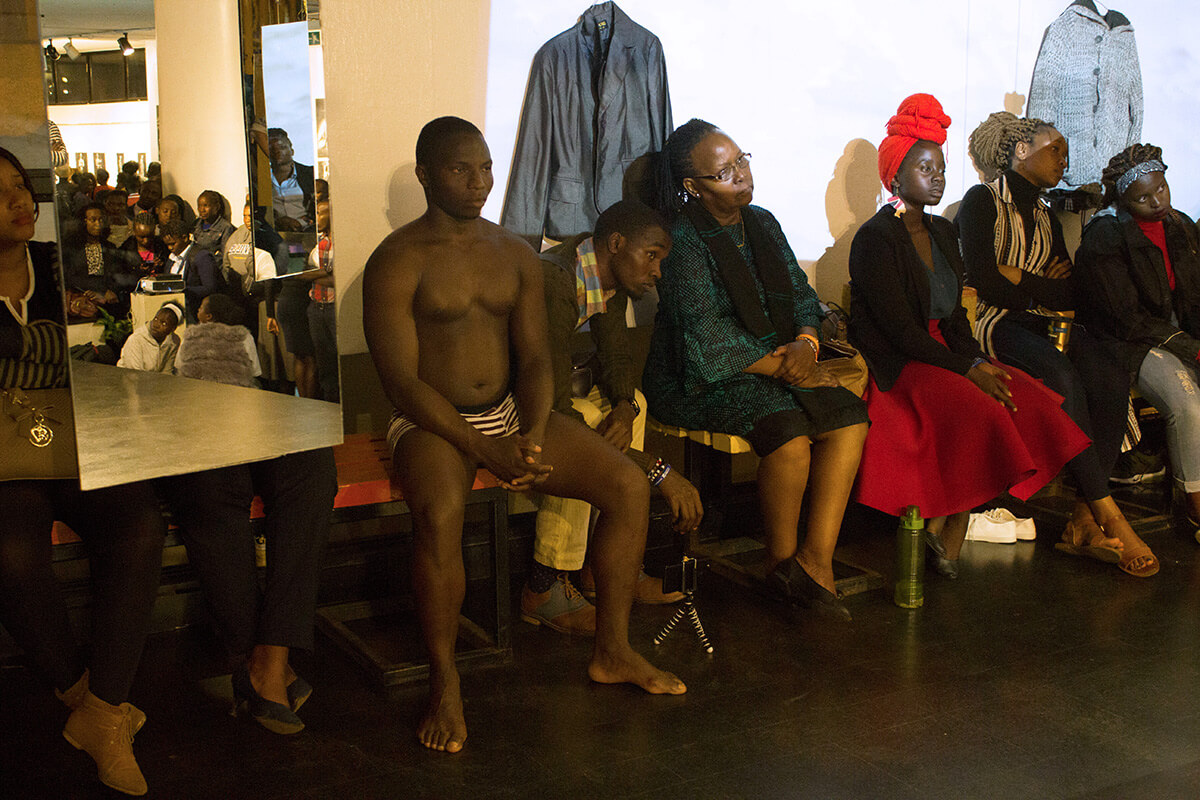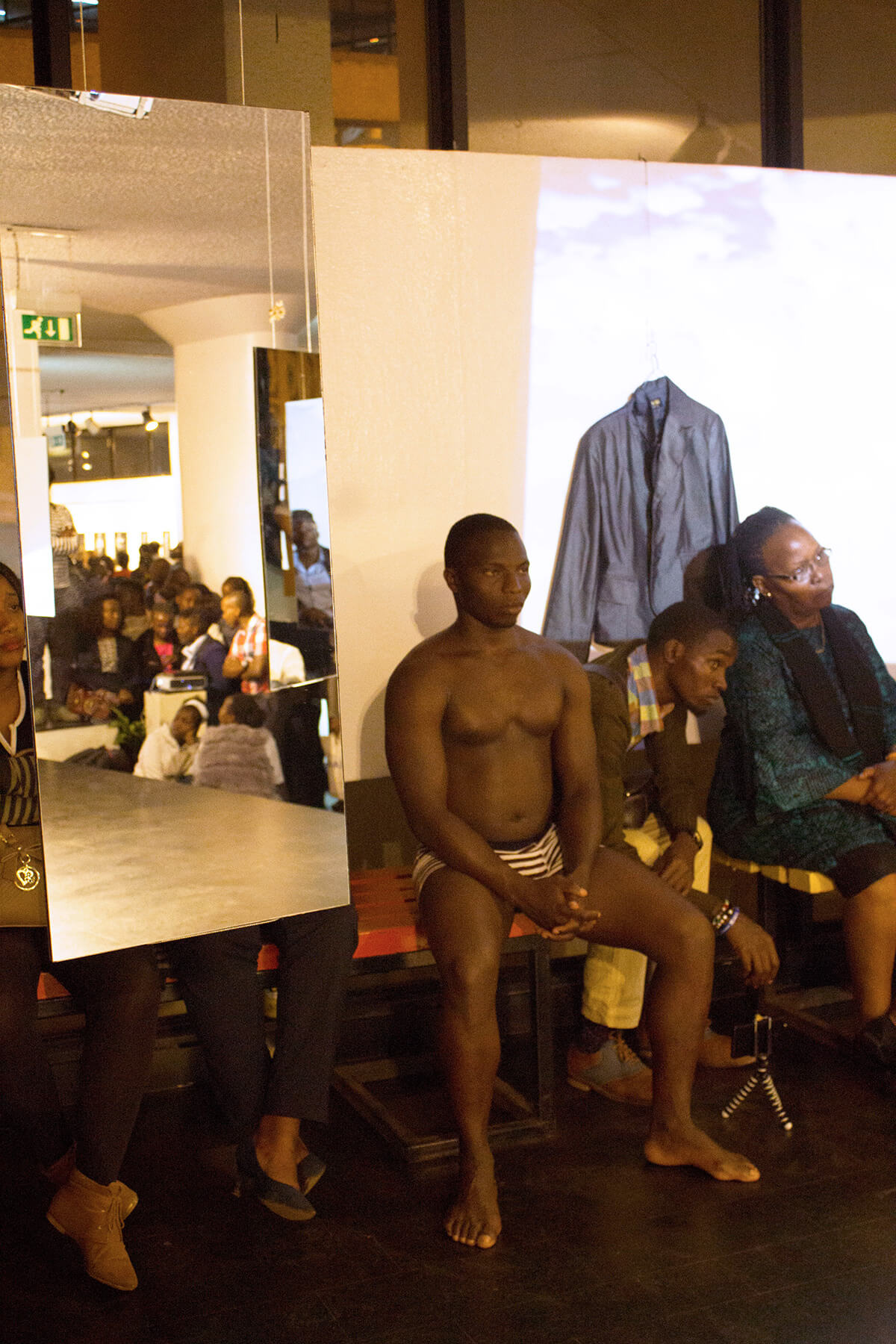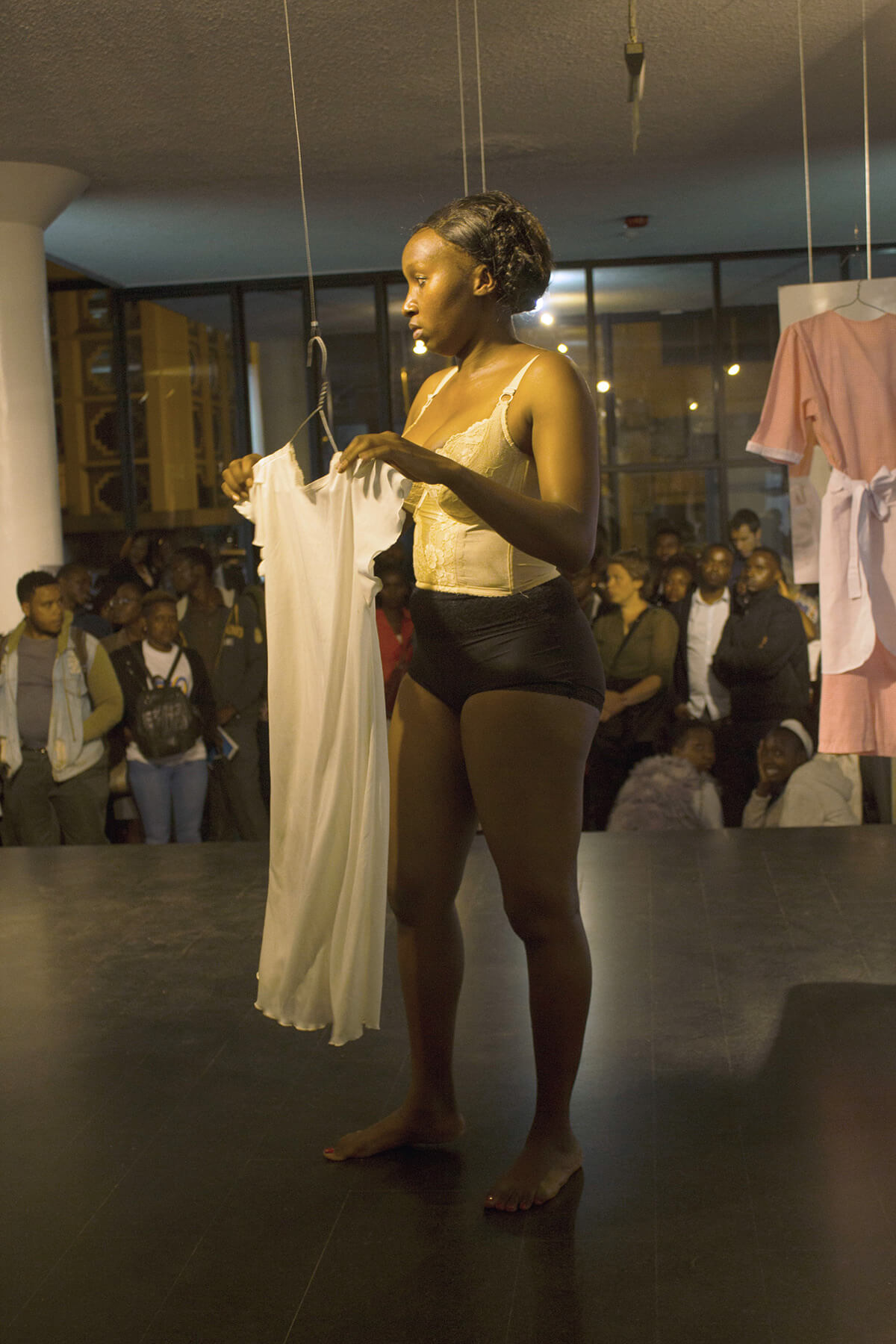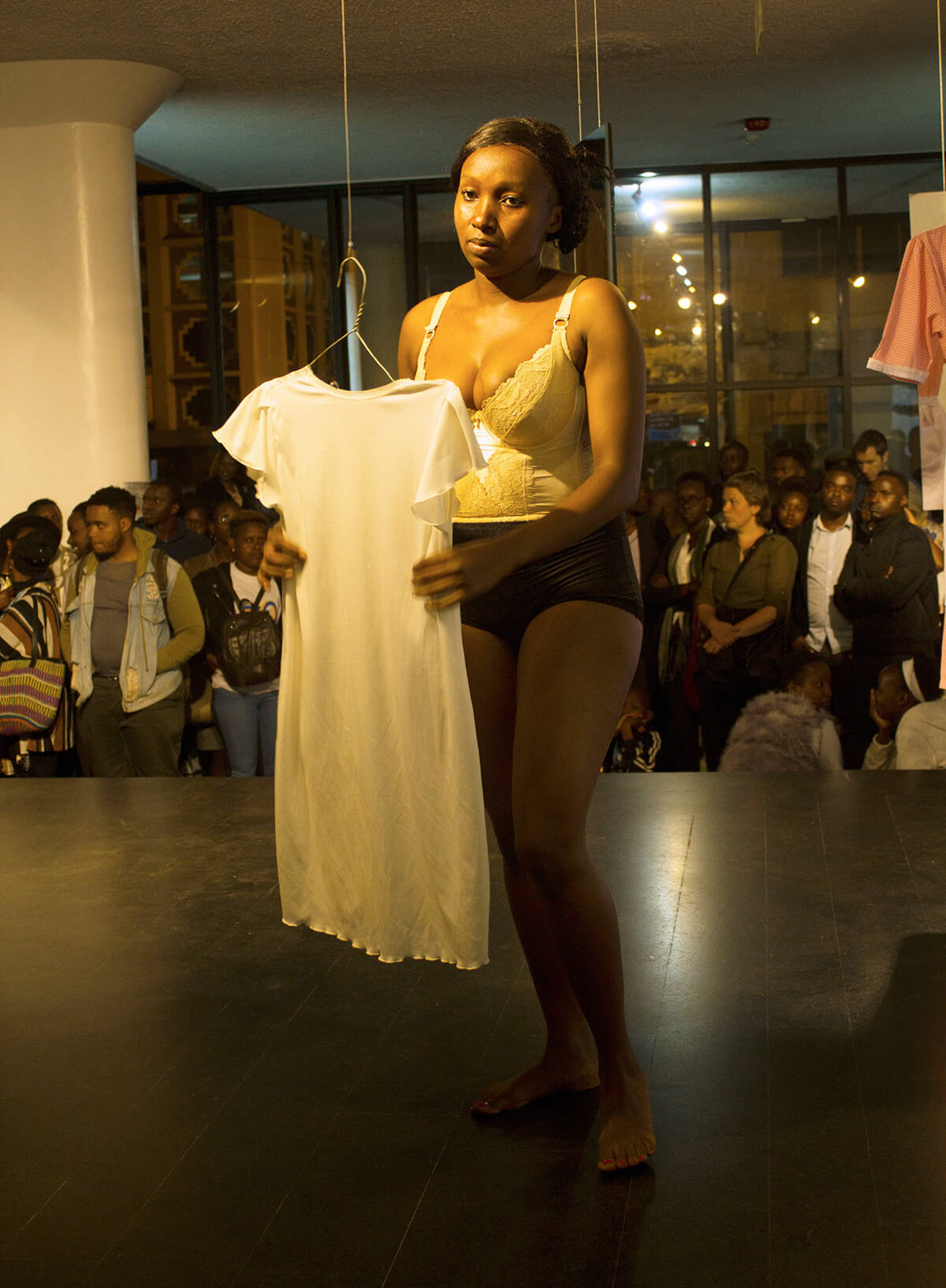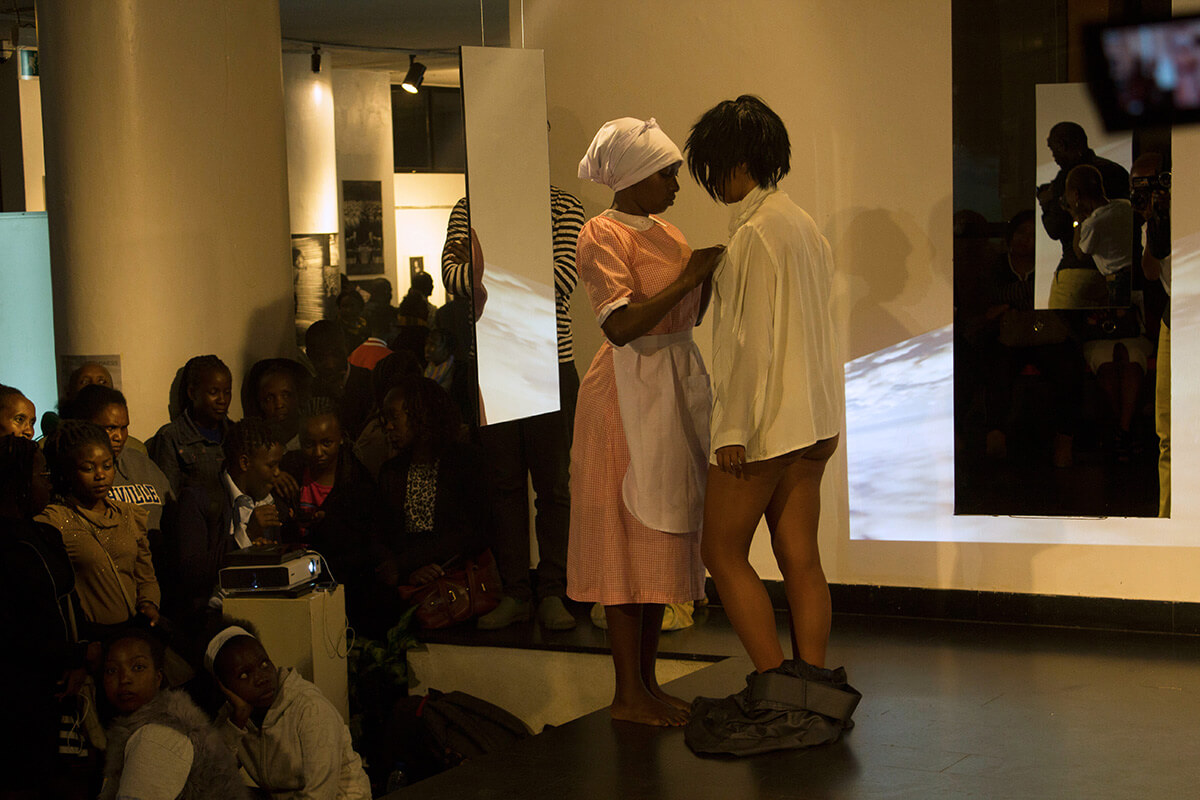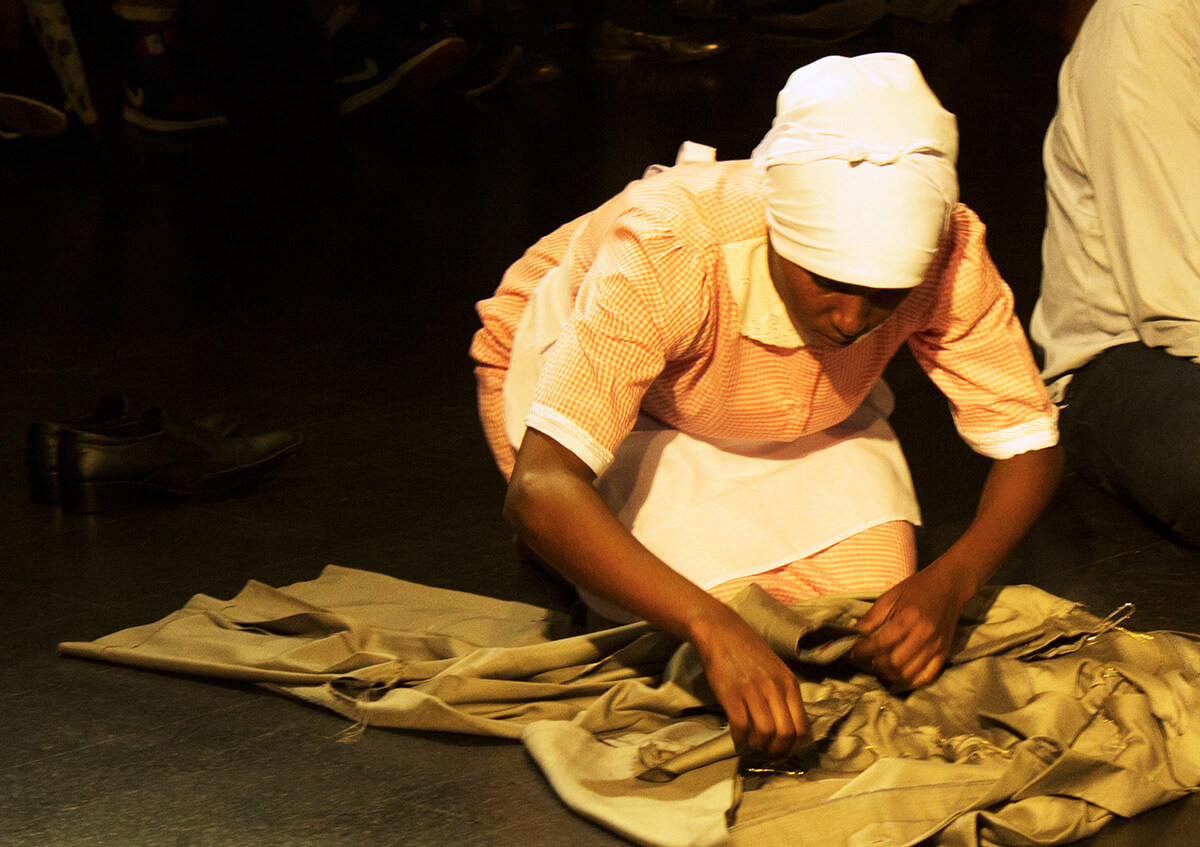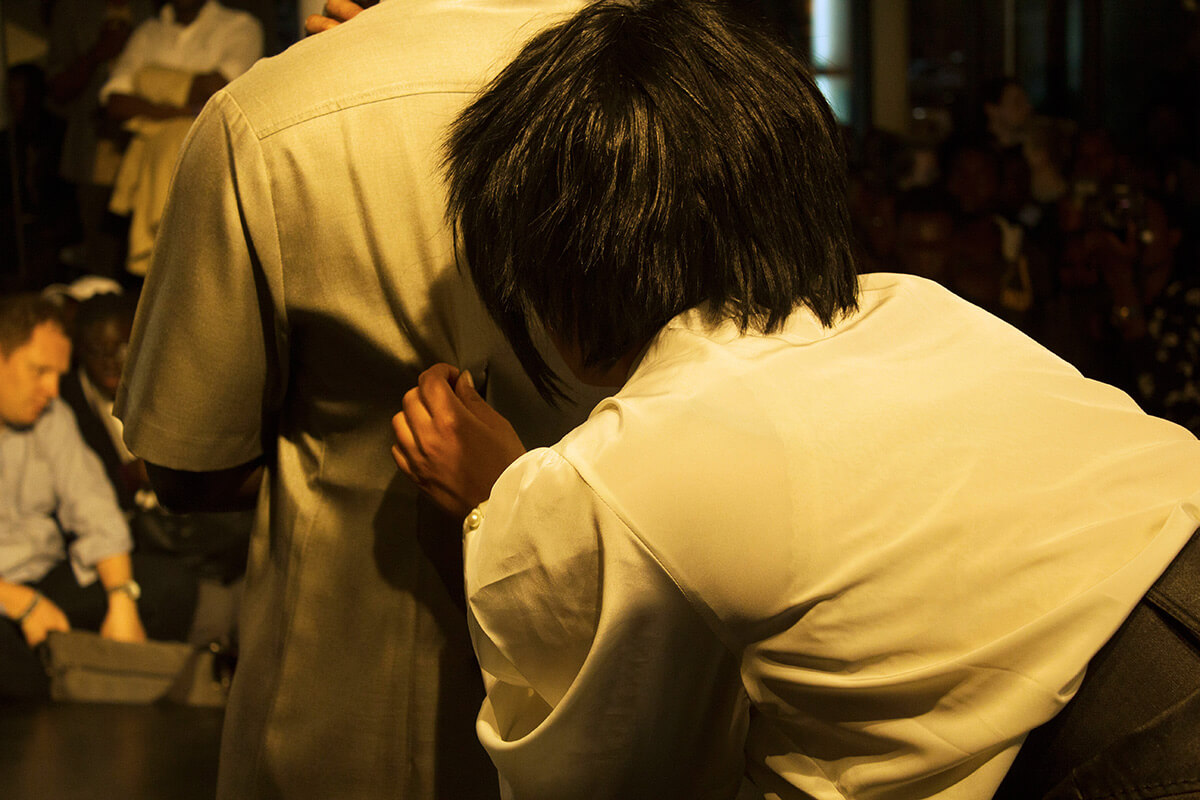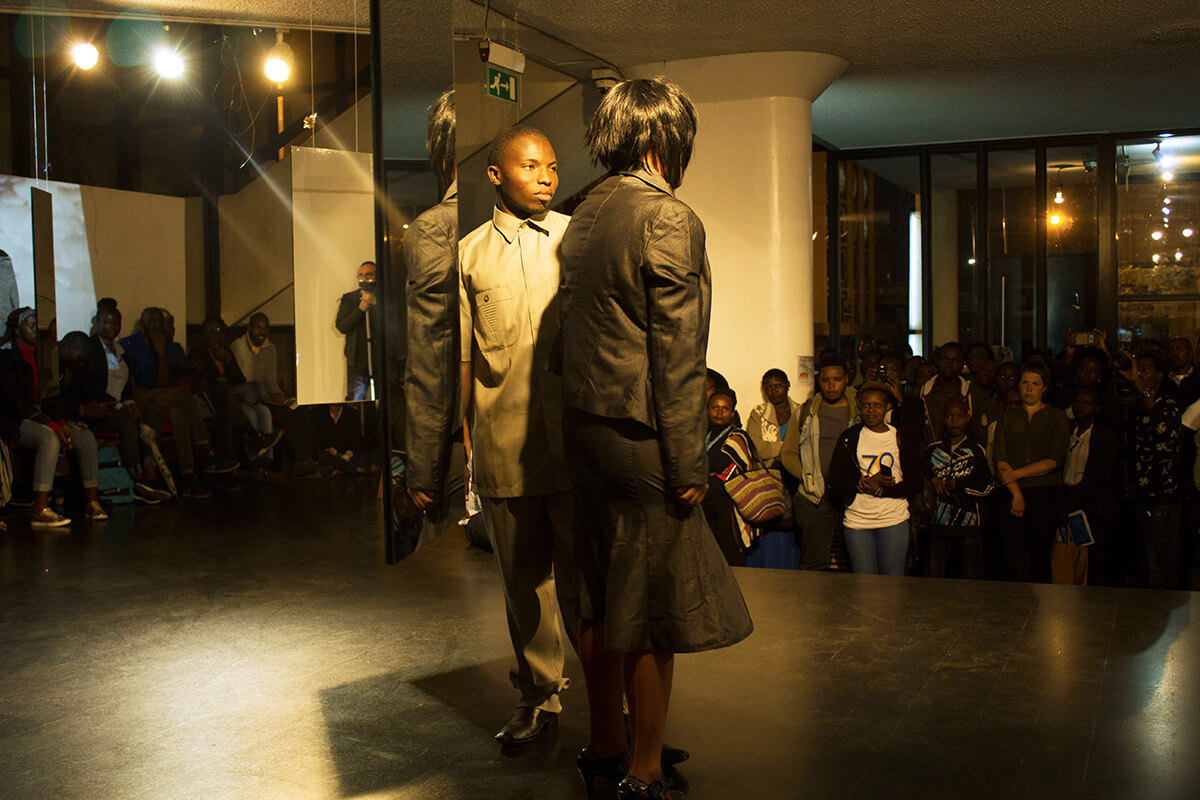Identity, gender, memory, colonialism. These are the topics that the German-Kenyan multimedia, installation, and performance artist Syowia Kyambi deals with. She takes a critical stance on the cultural power structures that shape the construction of the self in the post-colonial world.
The exhibition Double Consciousness refers to a central concept of the American philosopher and sociologist W.E.B. Du Bois, who is considered to be a leading figure of the civil rights movement and mastermind of Pan-Africanism. Syowia Kyambi draws attention to a specific aspect of the term double consciousness, which expresses the internal division or fragmentation of identity that individuals develop under conditions of general civil, political, and cultural inequality as a result of colonial history.
The exhibition shows a multimedia-based installation, a heterogeneous situation of several elements: While clothes together with double-sided mirrors hang from the ceiling, two projectors show sequences of a sky, striped with light clouds, on two walls. Next to that, a series of works on paper show gestural body prints of ash whose controlled randomness refers to performative actions. This suggests a time plane that correlates with a surrounding sound, the sounds of a strange rural environment. On another wall in the exhibition space, a diptych hangs, on whose panels two identical Kaunda suits, marked with the years 1964 and 2018, are placed next to each other.
The hanging clothes feature three central figures: a modern businesswoman, a servant, and another figure, marked as male by his clothes, namely a Kaunda suit. In the room situation, visitors interact with the figures insofar as they can look at themselves and at these through the mirrors, in the knowledge that one is being looked at by others. A situation that leads to a double consciousness.
Syowia Kyambi’s presence in the global art world is reflected in numerous solo and group exhibitions as well as artist residencies in countries like Belgium, Germany, Finland, France, Kenya, Mali, Mexico, Sweden, Zimbabwe, South Africa and the USA. In the course of her career, she was awarded several prizes and scholarships, such as the UNESCO Award for the Promotion of the Arts and the Art in Global Health Grant from the Wellcome Trust Fund in the United Kingdom.
Curator: Alejandro Perdomo Daniels
